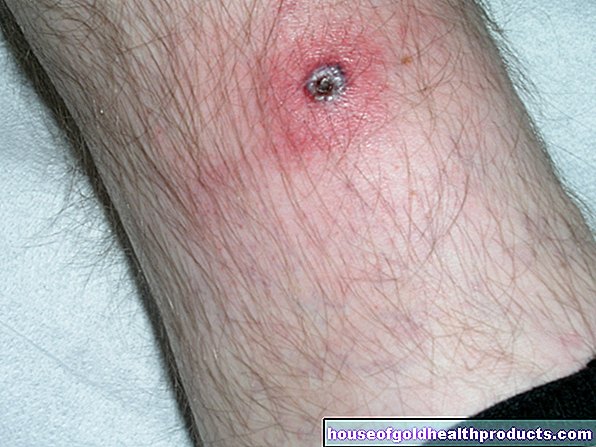Smoking: smoke residues are more dangerous than expected
All content is checked by medical journalists.MunichEven if the cigarette has been out for a long time, hands, clothes or hair still stink of smoke. This so-called “third-hand smoke” is not only annoying, but also harmful to health, according to a US study. An animal experiment showed that the deposits can have fatal effects on the liver and lungs. In addition, they promote hyperactivity and reduce the body's ability to heal itself.
"Avoid all contact with cigarette smoke," advised the University of California scientist. This not only refers to actively inhaled smoke, but also to passive smoke (in English "second-hand smoke") and "third-hand smoke". Manuela Martins-Green and her colleagues tested the physical effects of smoke residues on mice for the first time.
Fat livers and inflamed lungs
In fact, the third-hand smoke affected the animals on several levels. The researchers found elevated fat levels in the liver, which could promote the development of fatty liver and are also considered to pave the way for liver cirrhosis or cancer.In the lungs, the deposits stimulated the growth of collagen and thus fueled inflammatory reactions that can end in chronic lung diseases such as asthma, for example. In addition, wounds in mice healed worse when exposed to third-hand smoke. They showed a course similar to that of wound healing in smokers who were operated on.
Change in behavior through smoking residues
In addition to the physical changes, the smoke residue also had an impact on behavior: the mice that came into contact with third-hand smoke became hyperactive. "The data suggest that the risk of neurological disorders the higher the exposure," says Martins-Green. Their results could serve as the basis for comparable studies on humans. The researchers consider that third-hand smoke is anything but harmless as proven.
Invisible legacies
According to the scientists, third-hand smoke is particularly dangerous for children, the partners of smokers or those who work in a smoking environment. Because the pollution of the environment of smokers is very high - both stuck on surfaces and free in the dust. How the residues develop their toxic effects also still needs to be researched. However, there is already a study by the Lawrence Berkeley National Laboratory in California that suggests that nicotine converts to carcinogenic substances in the air. But not only that, the longer the substances are stored on surfaces and float through the air, the more toxic they become. (lh)
Source: Manuela Martins-Green et al. Cigarette Smoke Toxins Deposited on Surfaces: Implications for Human Health. PLoS ONE, 2014; 9: e86391 DOI: 10.1371 / journal.pone.0086391
Tags: drugs interview tcm





























-bei-kindern.jpg)